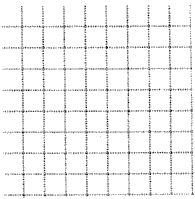\
 |
Keesha is planning a vacation for the summer after she
graduates from high school. Her family has agreed to pay for air fare and the hotel
accommodations if she saves enough money for the rental car and pocket money. Keesha
decides that she will use the money she has saved from her part time job as spending
money, and she will use the interest earned in her savings account to pay for the rental
car.
|
Keesha needs to research how much interest she can earn
and how much a car might cost to rent. She begins by researching banks and interest rates.
She decides that she wants to deposit $1000 in an
account at a bank that pays compound interest. Compound interest is paid on both the
principle and any previously earned interest. Banks pay interest on savings accounts at
specific interest periods, which can be monthly, quarterly, semi-annually, or annually.
Interest rates also vary between banks.
Before she begins shopping for a new bank, Keesha
decides to do her own calculations so that she can be more informed when meeting with a
banker.
To find the compound interest, she uses the formula
A= P (1+r/n)nt where A is
the amount in the account, P is the principle, r is the annual interest rate,
n is the number of interest periods per year, and t is time in years.
For example, Keesha wants to see how much interest she
would earn in two years at a rate of 4% if the interest is compounded semi-annually.
A= 1000 (1+ 0.04/2)2(2) = 1000 (1+ 0.02)4
= 1000 (1.02)4
= 1000 (1.0824322) 1082.4322
Keesha would earn about $82.43 over a two-year period.
She anticipates that the rental car will cost more than $82.43 and decides that her money
needs to earn more interest.
Find the amount, A, for each of the following by
using the compound interest formula. Assume that there are no deposits or withdrawals
after the initial deposit of $1000. Then record your answers in the chart.
1. Find A if P = $1000, r=3%, n=2, and
t=2.
2. Find A if P = $1000, r=4%, n=4, and
t=2.
3. Find A if P = $1000, r=5%, n=2, and
t=2.
4. Find A if P = $1000, r=5.5%, n=12,
and t=2.
5. Find A if P = $1000, r=6%, n=1, and
t=2.
6. Find A if P = $1000, r=7%, n=2, t=2.
7. Find A if P = $1000, r=8.2%, n=4,
and t=2.
8. Find A if P = $1000, r=9%, n=1, t=2.
9.
Principle |
Rate |
Number of interest
periods a year |
Time |
Amount in account |
Interest earned |
| |
|
|
|
|
|
| |
|
|
|
|
|
| |
|
|
|
|
|
| |
|
|
|
|
|
| |
|
|
|
|
|
| |
|
|
|
|
|
| |
|
|
|
|
|
| |
|
|
|
|
|
Call or visit at least five banking institutions in your
community. Find out their policies on compound interest. Then calculate the interest
earned on $1000 over 2 years at their given rates and number of interest periods per year.
Complete the chart.
10.
Name of
Bank |
Principle |
Number of
Interest
periods per year |
Time |
Amount in
account |
| |
|
|
|
|
| |
|
|
|
|
| |
|
|
|
|
| |
|
|
|
|
| |
|
|
|
|
11. Using the information in the chart, what is the
average interest rate that most banks offer?
12. About how much interest do you think Keesha will
earn over a 2-year period?
Car-rental companies usually charge a flat rate per day
or a special weekend rate. In addition, some companies offer unlimited miles, and some
charge an additional per-mile rate after a certain number of free miles per day. Contact
four different car-rental companies, and find out their rates for one-week rental of a
compact car. Try to get a variety of rates and billing conditions. Record your information
in a table of values. Then graph the ordered pairs on the grids provided.
13. Name of car rental company:
_____________________________
14. Name of car rental company:
_____________________________
15. Name of car rental company:
_____________________________
16. Name of car rental company:
_____________________________
17. Which graphs represent linear functions? Why?
18. Which graphs represent non-constant linear
functions? Why?
19. Review all of the data you have gathered. What
recommendation would you make to Keesha about making a rental car choice based on the
price of the rental car and the amount of money she can afford to pay for it? Explain your
response.
MathSummer
Projects
Copyright 1997-1999
Career Connection to Teaching with Technology
All rights reserved
unless otherwise specified |
